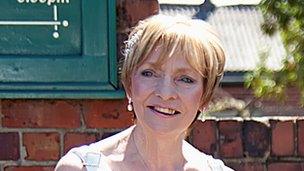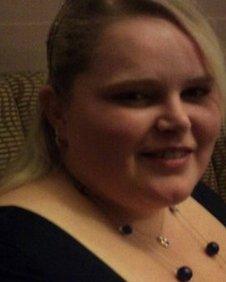Healthcare assistants: 'There's a disparity'
- Published
A new report looking into the training standards of healthcare assistants in hospitals, residential homes and the community in England calls for a universal training system.
The review set up in the wake of the Stafford Hospital scandal found that there is no minimum standard of training for healthcare assistants before they can work unsupervised.
BBC News website readers have been sharing their views and experiences.
Marilyn Sterry, Northumberland

"There is a disparity in the calibre of care workers"
I'm a full-time carer for my partner and I used to be a community nurse and care manager.
So I am well placed to say that there is a huge disparity in the calibre of care workers.
Fortunately, we have wonderful carers as I vet those the agency sends around but those I've rejected often looked unsuitable for the role.
Care in the community is the next big challenge for the health sector. If not looked into properly, it can easily turn into the next big disaster.
I'm particularly worried that the private agencies don't have resources to train their assistants to the standards necessary. With an ageing population, the demands of patients are more complex than they used to be 10 or 20 years ago.
Rebecca Hooper-Jones, Devon

"A register would benefit our service users"
I used to work as a healthcare assistant for eight years. I'm now office-based with a home-care company.
Our company already has a minimum training standards in place. Our training is two to three weeks long and runs eight hours for five-days-a-week.
Our care and support workers are trained in a range of areas including manual handling, delivering personal care as well as child protection and the protection of vulnerable adults.
All our carers must have this training before they are allowed to visit our service users, they are also taken out with experienced carers, to observe and eventually become hands-on with tasks so they can witness what they will be required to do, and to what standard, before they are allowed to work alone.
I am very proud and feel very privileged to work for a company who take such pride and care in the service we deliver.
I feel that a register would benefit our service users, and help to make them feel more comfortable about the carers we are providing, as it is a very daunting and frightening experience for them.
Annas Alamudi, London

"I will have to quit my job before starting nurse training"
I have been a healthcare assistant at a paediatrics ward since November. I think the standardised training is a very good idea as it seems to me that despite going through the trust induction, there is a confusion as to what an assistant is allowed to do.
The disparity is both between adult and paediatrics wards as well as between different paediatrics wards within the same hospital.
It will also be very good for senior healthcare assistants to avoid losing their skills, as has happened to a colleague of mine who has been a care assistant for longer than some of the staff nurses have been around.
At the stroke of a pen, a lot of the courses she had done over the years have become useless, as she is not allowed to practise the skills anymore.
The link to career progression to become a registered nurse is also very welcome, as in my case, I will have to quit my job before starting nurse training in September; a decision that was not easy to make.
Anonymous, UK
I have been a tetraplegic for 40 years. For 35 of those years, my wife was my full-time carer and did not have to worry.
Five years ago I was awarded continuing care and this has been a life-changing experience.
A local agency has been sending in carers daily. We have had to train most of them ourselves in the type of specialist care I need.
They would come in not knowing anything about my condition. Luckily, I am able to communicate quite forcefully to the agency my needs and I arranged some training through my spinal unit.
If it were not for this I do not think my health would be as good as it is, there is a definite case for more training.